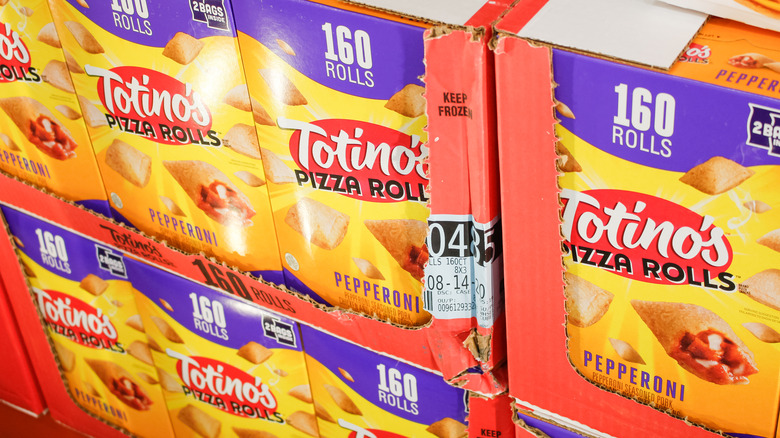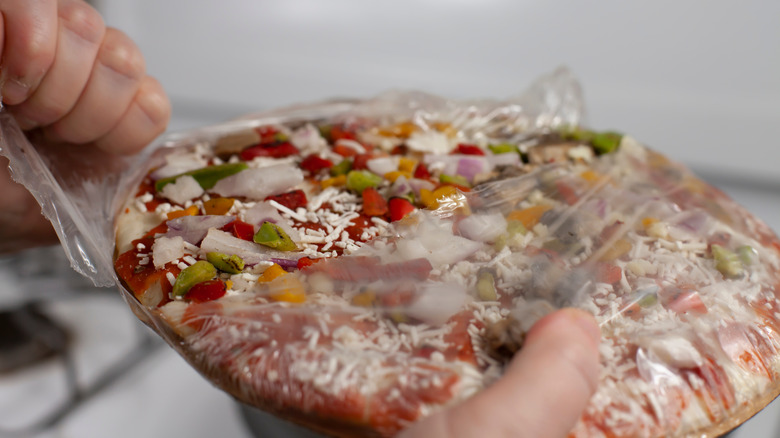Why You Might See Fewer Totino's And Pillsbury Products At The Grocery Store
Supply chain problems continue to impact food companies and grocery stores nationwide. Reuters found that the Omicron wave back in January contributed to massive produce shortages, particularly along the West Coast. The price of transporting the food also skyrocketed, and even if shoppers could get ahold of their favorite products they potentially had to deal with a much higher price tag.
Meanwhile, the war in Ukraine might continue to impact how you get your food at home. According to CNBC, the conflict has particularly affected wheat sales, the price of bread looks like it might continue to rise for some time to come as a result. All of these global issues trickle down directly to your local grocery store and that currently spells disaster for Tostino's and Pillsbury fans across America.
Thrillist reports that General Mills, the parent company of both brands, has faced recent issues in regards to supply chain snags. Pizza dough and frozen pizzas recently got hit the hardest, and service levels for these products have dropped about 20% in recent weeks.
When will the supply shortages end?
According to CNN, General Mills has faced bottlenecking issues at the centers that sort and send the products to stores. These transportation woes only get worse, considering the company has a hard time getting ahold of essential ingredients like "fats and oils and starch and packaging." The brand has since tried shifting to different suppliers in order to get their hands on enough ingredients to meet consumer demand, but it looks like the situation is slow going. As wheat prices and inflation continue to rise, times look dire for General Mills, but luckily, experts predict things might level out later this year.
Thrillist reports that despite the fact that goods have yet to make it to shelves, Pillsbury and Totino's should make a recovery as early as this fiscal quarter. Despite this optimism, General Mills has admitted that they are operating "below historical levels" and consumers might just have to wait a bit longer before they can get their hands on a can of frozen pizza dough anytime soon.

